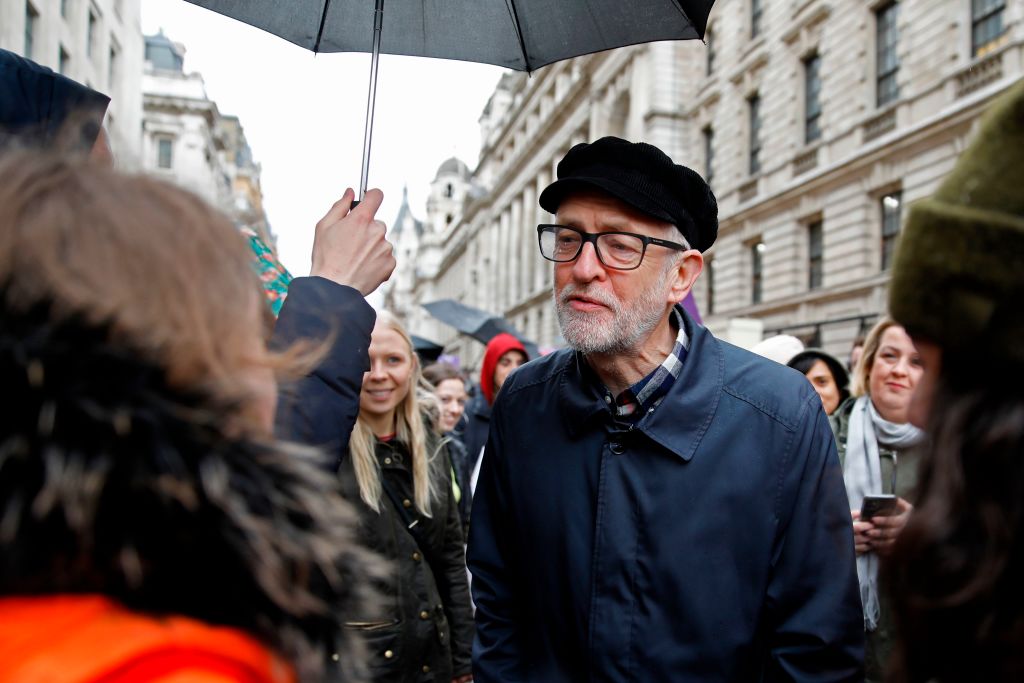It has become a received wisdom that coronavirus has forced Boris Johnson to morph into Jeremy Corbyn. Vast handouts to business, surging borrowing, open-ended commitments to NHS spending: there’s certainly a whiff of Labour policy in there. Some Conservative ministers even appear to see it that way; ‘We’ll find ourselves implementing most of Jeremy Corbyn’s programme,’ one of them told Robert Peston yesterday.
But no, we have not ended up, by accident, with the government that we would have had if we had voted for Jeremy Corbyn in December. There is a world of difference between the measures that Rishi Sunak’s emergency measures and what Corbyn would have unleashed on the country.
True, borrowing is going to rise to eye-watering levels. The Budget alone doubled the projected deficit for the year ahead. By the end of the deep recession which is now guaranteed to happen it would be a miracle if the deficit did not exceed the £154 billion deficit that Gordon Brown ran in 2009/10. I would be surprised if it doesn’t hit at least £200 billion. It isn’t just the extra spending which will hammer a great fat wedge between public revenue and expenditure, it is the declining tax revenues as business suffer falling profits and people lose their jobs.
The government may rue that it abandoned George Osborne’s original plan for bringing the public finances back into balance by the end of the 2010-15 Parliament. Once again we are going to learn that if you are running a deficit in the good times, a crisis is assured when the inevitable recession strikes. Yet that is where the resemblance between the Johnson government and the could-have-been Corbyn government ends. The Conservatives are not nationalising anything, as Corbyn would have done: he would have used the opportunity to seize control of any business which got into trouble, way beyond the utilities that he promised to nationalise. On the contrary, Sunak’s help package is concentrated on one aim: to keep private businesses in operation.
Nor, in contrast to Corbyn, is the government proposing a permanent shift in the size of the public sector. Sunak has offered to underwrite £330 billion worth of emergency loans, but that is not the same as proposing to increase public spending by £80 billion a year, every year. Nor is the government threatening to seize ten per cent of company stock in order to put it into a fund for the benefit of the workers (and the Exchequer). It might be hard to imagine that the stockmarket crashing further than it has done in the past three weeks, but the effect of a Corbyn government on markets would have been even more severe, and the prospects for recovery more bleak.
Some, needless to say, will use the crisis in order to promote socialism – like the ‘Pause the System’ protesters outside Downing Street on Tuesday who, to judge by the names of their spokespeople, is essentially Extinction Rebellion in disguise. But socialism is not what they are going to get from this government.
This article is free to read
To unlock more articles, subscribe to get 3 months of unlimited access for just $5








Comments
Join the debate for just £1 a month
Be part of the conversation with other Spectator readers by getting your first three months for £3.
UNLOCK ACCESS Just £1 a monthAlready a subscriber? Log in